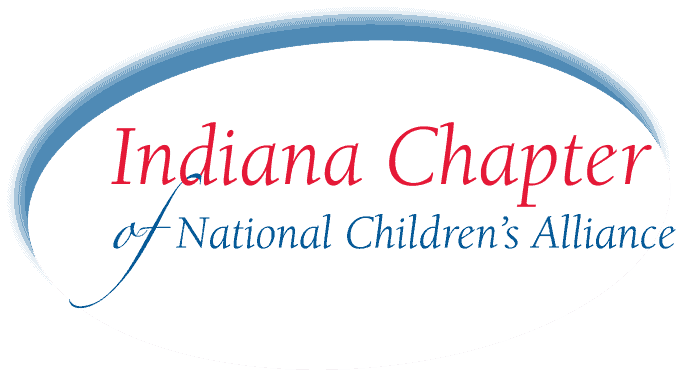You are probably familiar with stories of people who became the CEO of a large company who got there by starting in the most entry-level position the company has to offer. If you have never met anyone with a similar career trajectory, you need only to visit The CASIE Center in South Bend, Ind. and find Carolyn Hahn. She calls herself the Chief Executive Janitor.
The Child Abuse Services, Investigation, and Education (CASIE) Center sits along the St. Joseph River in a brick building with clean lines and clean landscaping. Twenty-five years ago it had none of that. And the child advocacy center component of The CASIE Center was still novel and mostly untested in Indiana. Second only to Elkhart and an early forerunner of what would become Indianapolis’ child advocacy center, The CASIE Center was spearheaded by a group of local prosecutors, law enforcement, medical and mental health professionals who saw what Elkhart was doing down the road.
That initial committee consisted of representatives from Memorial Hospital, Mike Barnes who was then St. Joseph County’s Prosecutor, and local therapist Tom Balthazar who were all keen on emulating Elkhart’s facility. Others, like Sharon McManus who worked with Mr. Barnes in the Prosecutor’s office and a local child abuse and neglect task force were also vocal forces in favor of the Center.
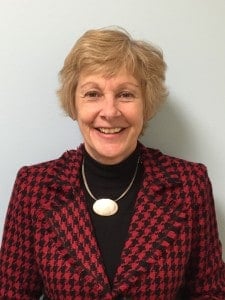
Through their extensive planning in the early 90s, The CASIE Center found its footing through charters and planning documents prepared by that initial steering committee, many of which are still in use and mostly unchanged today. Hahn, meanwhile, found her footing with the Center by volunteering to paint the vacated hospital facility Memorial Hospital was donating rent-free. “I wanted to be a part of this place,” she recalls.
Hahn started her professional career with kids as an elementary school teacher. After the birth of her second child, she recalls, “I wanted to stay home for a while.” Bouncing around between volunteer work with the Junior League of South Bend and work as a substitute teacher, a new pilot truancy program position soon opened.
The truancy program was designed less to punish kids for missing school and more to intervene in the adult parent’s lives to give them help where they needed it. “At that age, it’s not the kids’ fault they’re not in school. It’s up to the parents, but maybe they’re struggling with something we could help with,” says Hahn. Hahn’s work in the truancy intervention program made an impression with CASIE Center leaders.
“I learned and trained a lot in those early years. Soon I became the Assistant Director and learned how to conduct [forensic] interviews,” says Hahn. “My elementary school background meant I understood how kids could feel, think, and talk. I was watching these interviews and knew we needed to standardize the process. We needed to learn how to do it with best practices.”
In 1998 Michael Barnes lost his bid for re-election as St. Joseph County’s Prosecutor after a long career. He would be named to the Indiana Court of Appeals two years later by Gov. Frank O’Bannon. But in the interim, the change in staff and leadership sent everyone scattering — except Hahn.
“All the staff I worked with, the paralegals, they were all gone,” she recalls. “That’s when we got stronger because we had to.”
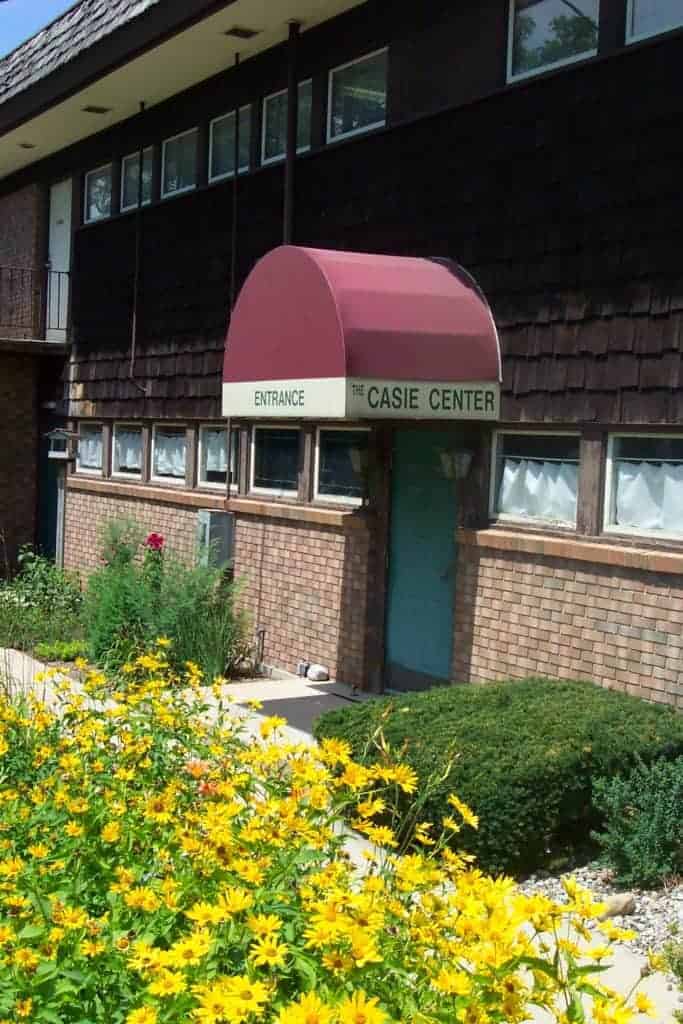
The Board of Directors wanted Hahn to stay, citing her non-partisan approach and a clear focus on helping the children and families their mission upholds them to serve. In January 1999, Hahn was named Executive Director of The CASIE Center, a title she has held for the last twenty years.
An expanding foundation for the next quarter-century
“When I came into this job I didn’t have any of the skill sets. But being a teacher means you have tremendous skills to help people get along and work together. That’s the nature of teaching, right? When kids first come to school they have to learn to share and stuff…that’s a lot of what this job entails. Getting other departments, agencies, and partners to share information and skill sets,” says Hahn.
“You don’t have to know it all, you just have to know how to help all the other people together to help them come up with the right services for kids and families. No one person can do it. No one department can do it,” she adds.
As The CASIE Center grew, so did the need for other facilities around Indiana. “This is around the time we started the Indiana Chapter,” says Hahn. “We were asked to go to a meeting in Chicago by the Midwest Regional CAC. They suggested to us that states with organized chapters were doing better than those without,” she recalls.
“Sharon McManus and I went to that meeting with the idea that ‘no way’ could we have time for that. But as we started talking with Rita Farrell in Carmel, who helped start the ChildFirst [formerly Finding Words] training program, we thought it was an idea worth trying,” says Hahn. We are so proud to have been a part of what the Chapter has accomplished over the years – watching so many Centers develop all over the state and creating the ChildFirst Indiana Interviewing Program.
The Indiana Chapter director, Jan Lutz recalls early memories of the Center, too. “Living in South Bend in 1993, I was a member of the Junior League of South Bend and a founding partner of the Center. We thought the Center would serve about 250 children a year. There was no vision 25 years ago that The CASIE Center would be a co-located, nationally accredited center, providing over 1,500 children a year with forensic interviews and also providing victim advocacy and medical services on site,” she says, adding, “Congratulations to the entire multidisciplinary team at The CASIE Center for 25 years of service for children and families – you work tirelessly and with unending commitment.”
“As we got stronger, we went from concentrating on how to do a good interview, to how we can focus on medical, mental health, and victim advocacy service,” Hahn notes.
“It’s made the job giant, and a lot of it is running a business now.”
For years The CASIE Center glided along without an obligation to pay rent to Memorial Hospital or having to raise significant sums of money through donations for anything beyond simple projects. “We didn’t have to raise a lot of money, which was the goal since the overhead was low on our end. My first few years, the budget was under $200,000.” For most of the staff and team members, this was ideal. Instead of focusing on the business, they could focus on the work.
But as businesses go, stagnation is a quiet destroyer. Hahn began to embrace her role as coordinator of staff, office supplies, equipment, training, education, and more.
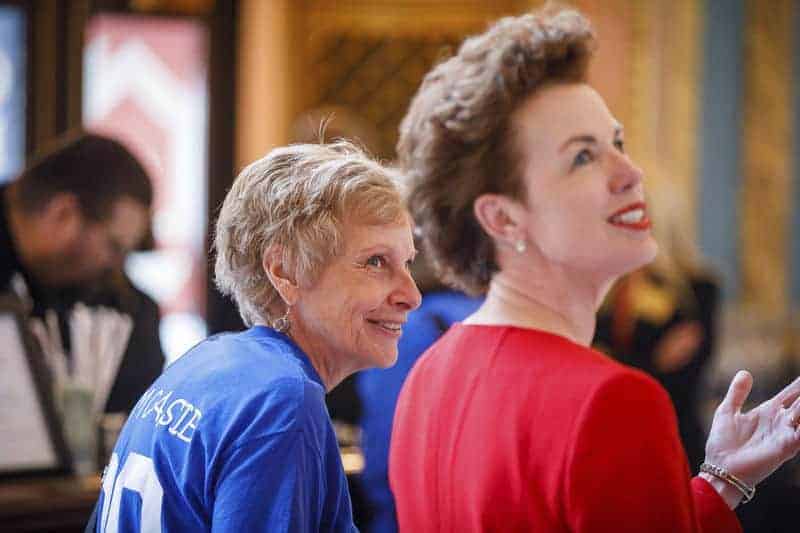
In 2013, the new $2.3 million facility The CASIE Center uses today opened. The Center was awarded the prestigious Leighton Award for Nonprofit Excellence for St. Joseph County in 2017. An endowment was established and has grown to $600,000 to help secure the longevity of the Center, and the Center has secured stable financial footing by owing just $80,000 on their original $2.3 million mortgage. “All things that in the early years we didn’t have the time or money to think about,” says Hahn.
“It’s changed so much and some ways it hasn’t changed at all. The core parts are the same: dedication to the kids every day, dedication to excellence, and combined wisdom,” says Hahn.
The CASIE Center’s unique approach to co-located services means the professionals who work there get more from each other, and so do families who walk in the door. Different agencies, departments, and service groups pay rent to be in the Center. The result is a collection of services unmatched in any single place in much of the Midwest. A special needs adult victim who needs a non-leading interview, an abused mother who needs a divorce attorney and a protection order, a child who needs medical treatment can all receive help, safely and securely in one place at The CASIE Center, often in the same day.
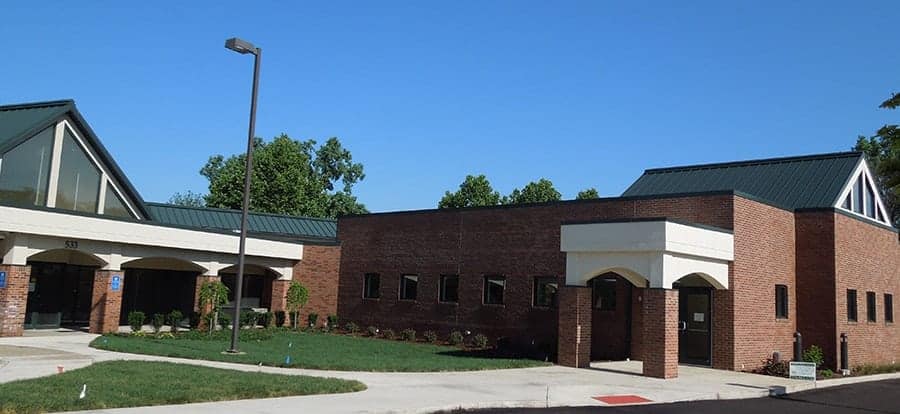
“You get more from each other; you never know who has the wisdom that day. People are generous when they know there’s a way to help,” says Hahn. “We’ll continue to be established with our endowment and solid donors who give us the support to do the work. We have a lot of support we didn’t years ago.” Without pausing she adds, “Quietly trying to do the work well makes you work hard on your reputation, being fair, and being impartial.”
You help the family, you help the child
Like an elementary school teacher with a heart capable of remembering every student, Hahn also remembers many of the cases that come through the Center. “We had a terrible case eight years ago that changed our whole community. There were nine kids in a house and unknown to anyone, this man brutally beat and burned these children.”
Ten-year-old Tramelle Strugis was killed in a “night of torture” by his father on November 4, 2011. His older brother survived, but was severely injured, all while their grandmother lived upstairs and knew of the abuse. “These kids lived in this house of horrors,” says Hahn. Terry Sturgis and Delia Castile are both in prison today.
Hahn continues, “Then one morning someone called 911 to say one of the other boys was dead. They all came in and every one of us worked the case that day.” As the case unfolded and investigators and the forensic interviewers spoke to the kids, they realized almost all of the other kids were beaten, too. Their abuse went on for so long because the injuries were meant to be hidden, often by forcing the children to wear long clothes.
“It changed so many things. Our community response changed. When someone reports an allegation now we have to move, act, and pay attention. Just because a kid says nothing happened, you still have to look into a case fully. “
The Indiana Child Abuse Hotline was new around that time, and it too improved because of that case. “But it was a hard price to pay,” says Hahn. “The whole community was really damaged by it and we all felt dreadful. There’s better reporting now. It brought to light the severity of things and the whole state paid attention. The number of investigations has gone up, and that’s maybe a good thing as we all try to pay attention to situations.”
12,950 forensic interviews took place in The CASIE Center’s original building before it was decommissioned in 2013. Today, The CASIE Center averages one of the highest caseloads in the state at nearly 1,500 a year.
Hahn calls the building and the capital campaign to pay for it and the space for sixty people who work inside its halls every day “the monumental project for a lifetime”.
“That’s been rewarding and challenging.” Harkening back to her days when she was painting the walls of the first facility, Hahn embraces her self-described role as Chief Executive Janitor. “Right now I have a broken air conditioner. It’s not a glamorous job. But I get moments of joy,” she says.
On any given day, a caseworker walks by to say thanks for the letter of recommendation from Hahn that secured her spot in graduate school. A police officer comes by, takes off all his equipment and firearm, and just goes to sit with the kids, just to be kind to them. A female prosecutor wins a case and tells a female nurse, who thinks she didn’t do as well as she could, that she did alright. “That’s my reward,” says Hahn.
“My job interviewing children is the most meaningful. When a kid comes through these doors, time disappears, and I’m just in there to hear their world. Whatever they want to tell me,” says Hahn. Hahn has interviewed over 6500 children over the past 25 years.
“All the stuff we have to do to support this place never gets old. When someone trusts you to tell them something scary, or they think this stuff doesn’t happen to anyone else and learn they’re not alone, that’s the gift for doing the work. You help the family; you help the child. Twenty-five years later.”
